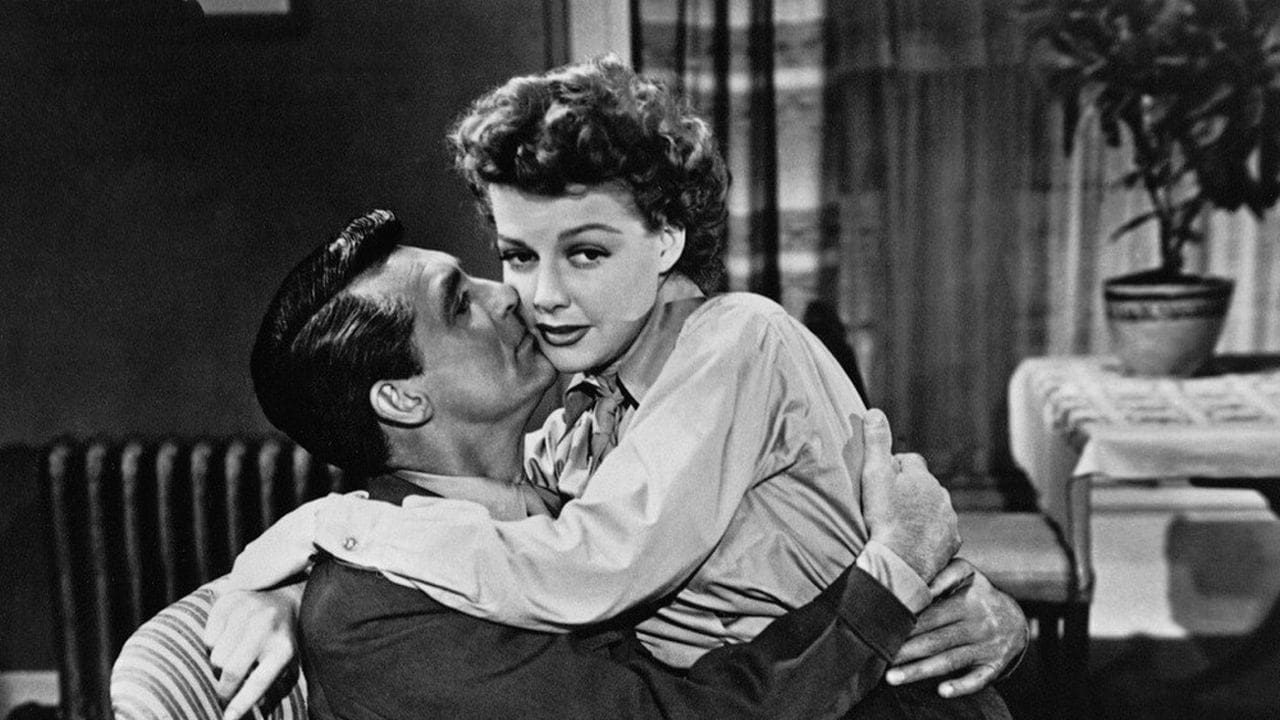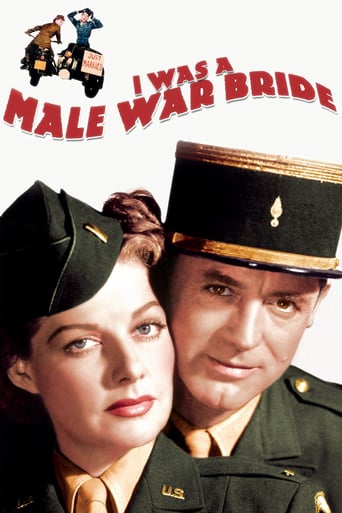

I Was a Male War Bride (1949)Howard Hawks directing Cary Grant in a farce of a post-war comedy. It's hilarious at times, and always engaging as you'd expect. But then, you might also expect something even further over the top, which might have made this a classic rather than just a really funny fun film.A reminder--this is the pairing that gave us "Bringing Up Baby" and "His Girl Friday," two of the funniest movies ever. Even "Monkey Business," three years later, had more zaniness to it, though clearly in third place among the four. "I Was a Male War Bride" is the up side to the film noir version of the American soldier in the late 1940s, and it plays into a lot of jokes that were probably hilarious at the time--like the absurd acronyms the military used and uses--but in 2011 it's the larger romance and brief cross-dressing that are the hooks.If the other three Hawks-Grant comedies have the likes of Katherine Hepburn and Marilyn Monroe to give them longevity (and writers like Ben Hecht chipping in on that score), this one has the lesser known Ann Sheridan. As friendly, likable and every-day as she is meant to be (a little like Ginger Rogers in "Monkey Business"), she never quite lights up the screen. Or more importantly, lights up Cary Grant. Don't worry, there are really funny parts--the motorcycle scenes in general, including on the boat--so watch this, definitely. Grant might not be his quirky or even romantic best, but he's still Cary Grant. And the writing is fun, the pace always fast. And then, when you're done, you'll want to remember the others in this group. And to round it out, you might discover the fifth collaboration--not a comedy--the moving and very well made "Only Angels Have Wings." Great stuff all around.
... View MoreThough I didn't see it until today I think I'm fairly safe in saying that this entry hasn't worn well. Without researching the reviews at the time I'm prepared to believe it was well received and the fact that it relied solely on the two stars to sell it - there is not one single 'name' in the supporting cast - speaks volumes for the box office clout of Grant and Sheridan. Apparently based on real events in the life of a French soldier in World War II Cary Grant, despite bearing a French name, Henri Rochard, and clearly a member of the French armed forces, makes no attempt at a French accent and Hawks wastes half the running time on the Beatrice and Benedek aspect of the relationship before getting to the meat, the fact that Grant, in order to enter the United States, has to be classified as a 'war bride' and when one of the biggest jokes is this 'bride' forced to sleep in a bath, we lose hope of much better. I found it just about watchable.
... View MoreHoward Hawks proves once again why he is considered to be the director's director. The story is fairly simplistic, but with the help of brilliant actors and ingenious dialogue he turned it into a masterpiece and a classic. And it's a damn funny movie, too.I expected an explanation how the limey Grant got to join the French army, until the credits rolled and forced me to realise that he was meant to be genuine, native French. The good thing here is that Grant never in the least tries to act French, which is probably a good idea as it would have proved to be annoying in the long run. He merely wears a képi.The chemistry between Ann Sheridan and Cary Grant is amazing, and Ann is so damn sexy. I particularly enjoyed her role as a strong yet sensuous woman, who, in contrast with many other female roles of the time, comes across as plenty fresh and modern.The movie is a light-hearted comedy for the first half, and then suddenly turns into an almost Kafkaian nightmare for the rest. Grant really shows us his thespic stuff when he's battling being turned into a woman for bureaucratic reasons.I'm giving this only nine points because I want to leave me some room for improvement. But it's a brilliant and very enjoyable movie, which is sadly underrated.
... View MoreThis screwball comedy is not one of Howard Hawks best films but it is still very watchable. Grant is the focus of the film and carries it pretty much alone as much as his carrying hidden stuff in his suitcase.While Grant did a lot of Comedy films of this nature, this one is the one where he is the center of this film. There are others where Grant is good too but since he is the center of this movie, it is his personal best.The sexual tension presented in this film is very much the type of tension that existed in the late 1940's but has changed much since then. Still this film is very good and runs on TCM on occasion.
... View More